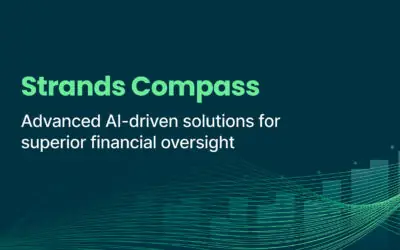According to the Federal Reserve Bank of New York, there are more than 1,214 banking deserts in the United States. A banking desert is an area lacking bank branches within a 10-mile radius. These deserts are dispersed across the country, with most in sparsely populated regions and surprisingly, 23% in urban areas. Major cities like New York and Boston, however, have none, highlighting the disparities in access.
Approximately 5% of the U.S. population, or 7.1 million households, are unbanked, with an additional 13% considered underbanked. Interestingly, banking deserts don’t always align with the number of unbanked and underbanked individuals in a given area. This underscores the need for targeted solutions.
Regions in the Southern US, particularly in states like Louisiana and Mississippi, face particularly acute challenges. These areas have high rates of unbanked individuals, along with difficulties accessing credit and facing higher interest rates. To address these disparities, initiatives like the Southern Communities Initiative (SCI) are working to enhance financial well-being by improving access to capital and modernizing systems at community development and minority depository institutions.
The benefits of financial inclusion
Financial inclusion is a win-win situation. It makes the day-to-day living of families and businesses easier, while also boosting the capacity of banks to harness data and identify opportunities for innovation. Here’s how financial inclusion can benefit the end users:
1. Accessibility
Financially excluded individuals often lack access to core banking services, such as savings accounts, loans, and insurance. Providing these essential services to help clients manage their finances more effectively will help them achieve basic economic stability, which can prevent unfortunate economic risks in both short and long-term.
Additionally, leveraging data-driven money management solutions empowers individuals to save and invest, fostering entrepreneurship, job creation, and improved living standards. Financially included clients also have better access to education and healthcare, driving socio-economic development.
2. Economic opportunities
Leveraging on data-driven money management solutions, banks can empower individuals to save, invest, facilitating entrepreneurship, job creation, and improved living standards. Financially included clients have better access to education and healthcare, driving socio-economic development.
3. Financial wellness and literacy
Harnessing the power of data, leading banks can deliver personalized insights and tailored recommendations that foster financial wellness and literacy at different levels. By educating all clients, they can adopt more responsible financial behavior, informed decision-making, and even become more economically empowered. This comprehensive approach not only benefits individuals but also strengthens the capacity of banks to innovate and harness data effectively.
The value for banks
While financial inclusion greatly benefits bank clients, it also offers a great value for banks themselves:
1. Market expansion and customer base diversification
By targeting unbanked and underserved segments, banks can explore new market segments. Financial inclusion helps banks diversify their customer base, attract new clients, and establish long-lasting relationships. These inclusive practices cultivate customer loyalty, leading to profitability and long-term growth.
2. Enhanced reputation and brand image
Banks that promote financial inclusion enhance their brand’s reputation and create a positive brand image. This is particularly beneficial not only because it contributes to ethical banking practices but also because it can attract socially-conscious clients. In the medium and long-run, these practices contribute to generating new potential partnerships and collaborations with other institutions, and strengthening customer relationships.
3. Regulatory compliance and social responsibility
Many regulatory authorities force banks to undertake financial inclusion initiatives. By complying with these regulations, banks show their commitment to social responsibility and sustainable development. Being involved in such programs demonstrate that banks can be valuable contributors to the overall societal wellness, enhancing their standing within the regulatory environment.
4. Innovation and technological advancements
Financial inclusion requires the development of innovative banking solutions. To reach unbanked populations, banks need to adopt accessible and user-friendly technologies that go beyond traditional banking channels. Investing in these solutions also helps banks stay ahead of their competition meeting evolving customer needs and improving towards more tailored financial services.
In addressing these challenges, it’s essential to consider innovative approaches like niche banking, which caters to specific clienteles and addresses their unique financial needs. While neobanks are a prominent example, successful models like Nashville’s Studio Bank demonstrate the effectiveness of combining physical branches with an online platform for specialized services. Additionally, leveraging advanced technology solutions like those offered by Strands, with its powerful Personal Financial Management (PFM) capabilities, plays a vital role in enhancing customer adoption of digital channels in banking.
Address financial inclusion: partnering with fintechs
Bridging the gap in financial inclusion and addressing the issue of banking deserts in the US requires a multi-faceted approach. Niche banking, combined with advanced technology solutions, can play a pivotal role in expanding access to essential financial services and promoting inclusive growth in the banking sector.
To streamline operations and lower costs while delivering personalized solutions, banks can partner with fintech companies. Fintech solutions offer innovative technologies and efficient processes that extend beyond traditional banking, enabling banks to provide basic financial services and foster financial wellness. This partnership enhances accessibility for a wider and more diverse customer base. Embracing financial inclusion is not only a social responsibility but also a strategic move that empowers clients and drives growth in the banking sector.
Ready to partner with Strands and revolutionize your bank’s offerings? Discover how our digital banking solutions can unlock the full potential of financial inclusion. By joining forces with Strands, you’ll tap into the power of data-driven banking. Our state-of-the-art tools enable you to expand your market reach, diversify your customer base, and cultivate unwavering loyalty. Contact us today to embark on a transformative journey towards inclusive growth and unparalleled success.



